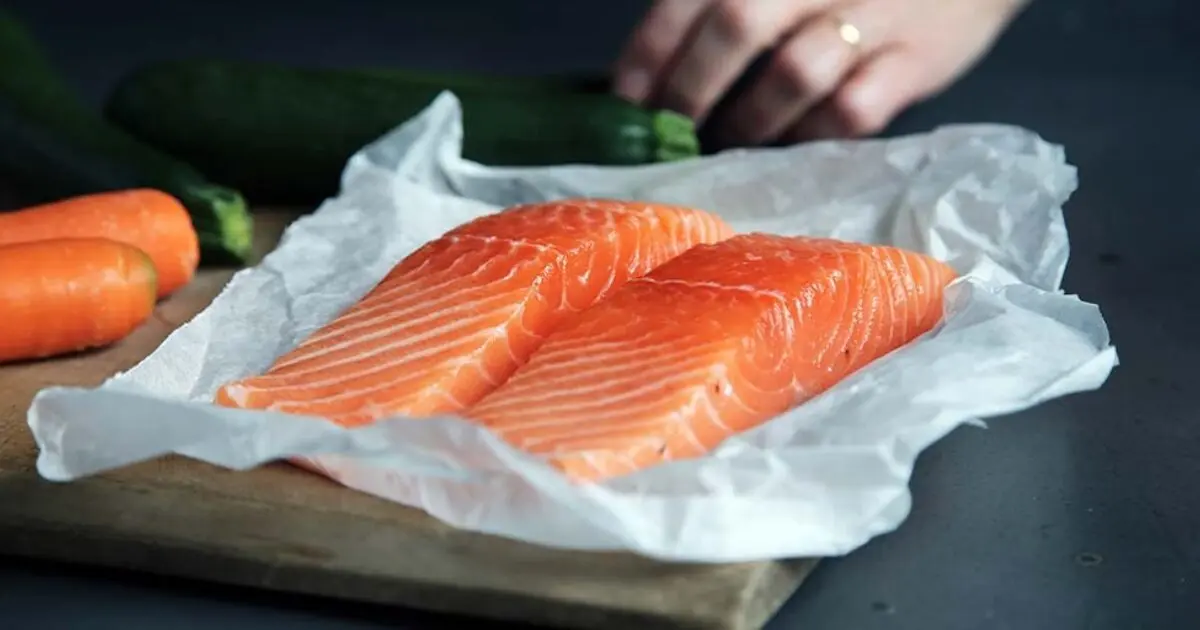There may be concerns about mercury levels in seafood, leading some people to avoid or limit their intake. However, when it comes to farmed salmon, these concerns are unfounded. In fact, farmed salmon is considered a best choice seafood option due to its low mercury content and high nutritional value. Food safety experts recommend consuming two portions of seafood, such as salmon, each week, as the health benefits outweigh any potential risks posed by mercury.
The Connection between Mercury and Seafood
Mercury is a naturally occurring element found in the earth's crust. It can be released into the air or water through various means, including volcanic eruptions, forest fires, and human activities like burning fossil fuels. The release of mercury poses a concern to both human and environmental health. When mercury enters water, it transforms into methylmercury, which accumulates in sediment and travels up the food chain.
As a result, all fish and shellfish contain some level of methylmercury, but the amount varies depending on the species and location. Mercury accumulates over time, especially in larger fish that consume smaller fish. This is why larger, carnivorous fish like shark, swordfish, and tuna are considered high-risk for mercury levels.
However, farmed salmon is classified as a low-mercury seafood option, making it safe to consume without worry.
The Connection between Mercury and Health
Methylmercury is toxic and can cause mercury poisoning over time. It can harm brain function, damage the nervous system, and weaken heart health. Pregnant or lactating women and children are particularly vulnerable to mercury's effects, as they are more sensitive than adults.
Despite these alarming effects, it is highly unlikely for the average person to experience mercury poisoning from consuming seafood. Food safety experts emphasize that the health benefits of regularly enjoying low-mercury seafood options outweigh any concerns posed by mercury. Luckily, there are plenty of low-mercury seafood choices, including salmon, that can be enjoyed without worry.
In the United States, 90% of seafood consumed is considered low in mercury and safe, according to the FDA/EPA.
Farmed Salmon: A Versatile and Safe Seafood Option
Farmed salmon is not only low in mercury but also a versatile seafood choice that offers numerous health benefits. Both wild and farmed Atlantic salmon have significantly lower mercury levels compared to other fish species. On average, farmed salmon contains 0.05 micrograms of mercury per gram, well below the safe levels recommended by the FDA and EPA.
The FDA and DGA recommend regularly consuming low-mercury seafood, including salmon, two to three times a week for a safe and healthy diet. Salmon is also high in omega-3 fatty acids, EPA, and DHA, with more than 15 grams of EPA and DHA per gram. This makes it an excellent choice for those looking to maintain a high EPA and DHA to low mercury ratio in their diet.
In addition to its health benefits, farmed salmon is a climate-friendly source of nutrition. It has a lower carbon footprint, requires less land, and utilizes feed resources more efficiently compared to other forms of protein.
Enjoying seafood, including farmed salmon, twice a week provides numerous nutritional benefits that outweigh any potential risks associated with mercury. Farmed salmon is a safe, healthy, and low-mercury seafood option that is not only good for your health but also for the environment. The Global Salmon Initiative (GSI) members are committed to producing farmed salmon that is better for people and the planet, ensuring its safety and sustainability.
If you want to know other articles similar to Mercury in smoked salmon: debunking concerns & health benefits you can visit the Seafood category.


Related Articles